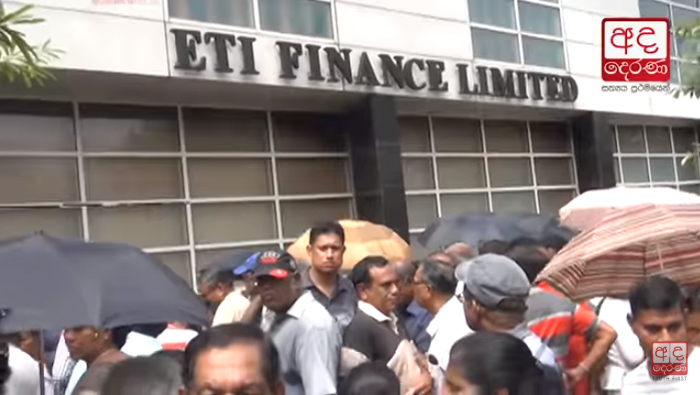July, 10, 2018

The third biggest family owned finance company in Sri Lanka to face a liquidity crisis after Golden Key and The Finance & Company in a less than a decade, after crossing the Rs. 25 billion mark in public deposits, Edirisinghe Trust investments (ETI) require over another US $ 100 million to turnaround, a latest observation by Sri Lanka’s financial regulator reveals.
On last Friday (06) Sri Lanka’s Central Bank Governor Dr. Indrajit Coomaraswamy addressing reporters said that Central bank is still looking for another investor who could infuse capital up to a US $ 100 million to ETI despite the new investors promising to pump US $ 75 million to the company, which so far came in two tranches totaling to US $ 43 million.
“We are still looking for another investor. We have to look for an investor. If an investor is not forthcoming then we would need to look in terms of liquidation. But with the Rs. 11.5 billion that would have come in from the investor who has bought all the subsidiaries, plus the deposit insurance money of Rs.600, 000 per depositor, we should be able to pay about two-third of the deposit. That is if we can’t find an investor to resuscitate the company,” Dr. Indrajit Coomaraswamy said.
According to Central Bank officials Edirisinghe Trust Investments (ETI Finance) had received an additional US $ 11 million of the US $ 43 million that was earmarked to be utilized to repay depositors of the troubled finance company, recently. On Friday addressing reporters Deputy Governor C.J.P Siriwardena said that the initial investment of US $ 75 million was divided into three segments.
“The first tranche of US $ 32 million was received last month, and 10% of it was used to start paying depositors in June. A second tranche of US $ 11 million was received on Thursday” he said adding that a third tranche of US $ 32 million, which was initially supposed to be transferred at the end of June, would be paid by the end of July.
According to Deputy Governor C.J.P Siriwardena, there had beena request by the company to get an extension of the payment to which Central Bank had agreed and he further confirmed that the international investor is Blue Summit, a company registered in Singapore and Ben Holdings, which is registered in Sri Lanka.
Owned and controlled by Sri Lanka’s once famous E.A.P. Edirisinghe who built his empire with a pawning license in the 1930s ‘tiling’ the establishment as Edirisinge Trust Investments Limited (ETI) that soon expanded into deposit taking, the group was later expanded by his wife Soma Edirisinghe to date until she passed away in November 2015. ETI once hailed as a leading and strongest finance companies in the country, and positioned many of its investments prominent places in the businesses of financial services, property development, jewellery sales, Entertainment and Leisure controlling over 40 cinemas in the country that has little over 50 cinemas. ETI profits were used to diversify and acquire new businesses and prime commercial property but after the EAP Edirisnghe’s demise, the businesses and assets of ETI went to Edirisnghe’s wife Soma and children, which became a problematic situation after the Central Bank tightened the screws on the financial sector after the Ceylinco Group’s Rs 26 billion Golden Key Credit Card Company collapse in 2008.
Analysts point out that despite Sri Lanka’s non-banking financial sector facing continuous trouble and bankruptcy, deposit runs from early 1990’s on wards had emerged starting from first Sinhalese Central Bank Governor N.U. Jayawardena family owned Mercantile Credit to Lalith Kotelawala once owned first Sri Lankan Credit Card company Golden Key and The Finance & Co, and several other finance companies in 2009’s. According to analysts Sri Lanka’s Big Brothers of Finance Companies in Sri Lanka had always been the Sharks that had gobbled up hard earned money of general public promising higher interest rates per annum, making some families and businessmen the billionaires of US $ 84 billion economy, at the expense of depositors money, in the 20 million populace.
Accordingly analysts further outline that many domestic investors and thousands of public depositors over the last 30 years history had lost millions and billions, and some have even committed suicide, and had faced family clashes and bankruptcy due to the mismanagement by some businessmen who ran non-banking financial companies in Sri Lanka.
- Reporting by Devendra Francis
Video Story